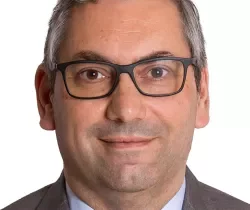Last month, a New York Times column by famous comedian Jerry Seinfeld went viral, in which he replies to James Altucher—a well-known businessman and writer—for stating that “New York is dead forever.” A few days earlier, Altucher had posted on his LinkedIn that, due to the pandemic and thanks to new technologies, the city that never sleeps is doomed to become a shadow of its former self: nowadays, many people prefer working remotely from less hectic places.
For those of us who were Seinfeld fans in our youth—and even today laugh aloud with the American sitcom in which “nothing happens” other than life itself—Jerry’s words, with his usual humor and a bit of stinging anger, hit straight home. Because, since the pandemic’s outbreak, many have predicted the death of exhibitions as we know them, a bit like the doomsayers who foretell the end of cities.
There are two of Seinfeld’s paragraphs that I love and that fit our events like a glove. In the first, he highlights why people move to big cities: to be with other people. “You ever wonder why Silicon Valley even exists?” he writes. “I have always wondered, why do these people all live and work in that location? They have all this insane technology, why don’t they all just spread out wherever they want to be and connect with their devices? Because it doesn’t work, that’s why.”
The same happens with exhibitions: we mingle with like-minded peers who do something similar or related to what we do. They are colleagues, competitors, researchers, current or future clients. For a couple of days a year we are all together, under the same roof. Wouldn’t it be the same to send all these people our product catalog by e-mail and ask them if they are interested in buying something from us? Of course it wouldn’t.
Zoom meetings or a webpage can’t quite reproduce or replace what happens when we meet face-to-face, see eye-to-eye, shake hands to close a deal. Of course, I’m not saying that digitization has no use or influence—new technologies are here to stay, for they are immensely helpful to reach more people and places, and to provide better services for exhibitors and visitors. But new tech is not going to put an end to an industry that is, like Messe Frankfurt, 780 years old.
Trade fairs are similar to conglomerates like Silicon Valley. Because, as Seinfeld says in another paragraph, “Energy, attitude and personality cannot be ‘remoted’ through even the best fiber optic lines.” That zesty energy that Jerry talks about springs forth when we get together, when we meet in places that enhance our creativity and make us feel that we are sharing something unique, something exceptional, with a lot of other people.
It’s true that we cannot do so today. And it’s true that technology helps us stay connected while we get through this weird “meanwhile.” But I know that trade fairs will once again be, as they always were, our industries’ crowning jewel.
Because, as Jerry says, this stupid virus will eventually give up. While we won’t. We’ll keep doing events that no one wants to miss, and they will be better and more tech-savvy than ever.
We the stout, resilient workers in the exhibitions industry love and understand what we do. We’ll be on our feet again.
See you at the events.
Don’t miss any event-related news: Sign up for our weekly e-newsletter HERE and engage with us on Twitter, Facebook, LinkedIn and Instagram!



Add new comment